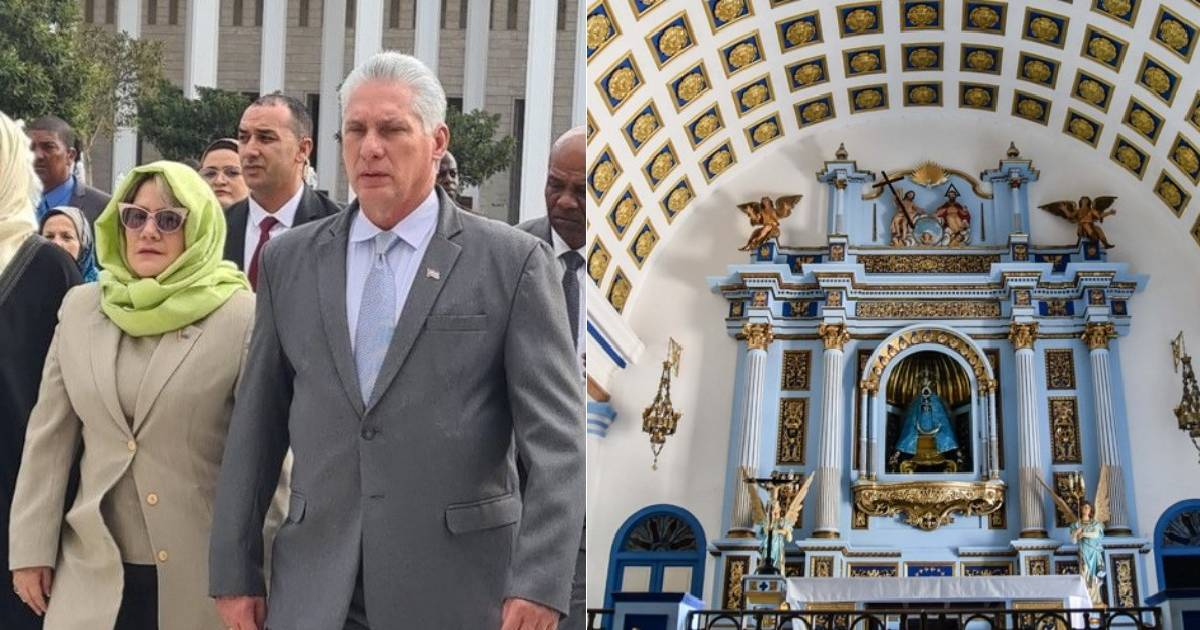
The wife of the Cuban rulerMiguel Díaz-Canelandnot the first lady of the islandIt appears there is no text provided to translate. Please provide the text you would like translated.Lis Cuesta, dedicated a plea this Saturday, September 7, the day when Cubans celebrate the Virgin of Regla or Yemayá, in Afro-Cuban religion, for the Cubans and Palestinians “who suffer so much.”
Cuesta wrote on the social network X, alongside an image of the revered religious deity: “Beautiful Virgin of the Blue, Yemayá, protect the Cubans with your sacred mantle, arrived from Mother Africa, and extend your love to the Palestinians, who suffer so much by your waters.”
Your request did not go unnoticed by Internet users, who, in their cases, direct their prayers towards the end of the suffering of the Cuban people.
"Yes Virgen de Regla, my mother, protect the Cuban people from this communist plague that is killing a nation," replied an internet user.
"Since when have you been interested in religion @liscuestacuba?" another user asked.
"Palestinians, water, virgin, Yemayá, sacred mantle, you eat or drink something that harms you, just hearing Maduro and now this and one says: 'there is no coherence!'" pointed out another person.
This is not the first time that Lis Cuesta has forcibly mixed the Israeli-Palestinian conflict with other issues of national significance, and in the last week, she has done so more frequently.
Last Tuesday, Díaz-Canel's wife referred to the start of the school year in Cuba and again alluded to the Palestinians.
"A generation is being destroyed in Gaza; there are no schools," he wrote on X, overlooking that many schools in Cuba have started the school year without maintenance, without the necessary school supplies, and that parents have to resort to ingenuity to be able to send them snacks, in a country where food security is getting worse.
On September 7th, Cubans celebrate one of the most important religious festivities of the syncretic calendar: the festival in honor of the Virgen de Regla in the Catholic religion and Yemayá in Cuban santería.
This date marks a special day in which the spirituality of Catholic faithful and believers of Santería converge in an act of devotion and respect towards two figures that, although originating from different religious traditions, represent the same thing for their followers.
What do you think?
COMMENTFiled under: